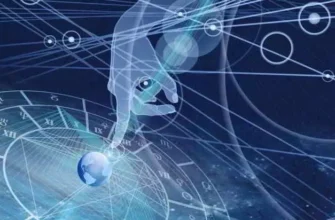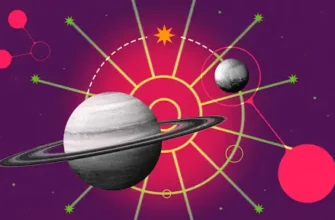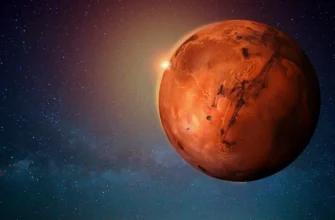Relationship astrology examines astrological factors influencing human connections and all forms of interpersonal interaction. Multiple natal chart elements combine to create complex pictures of potential relationship characteristics between individuals. Before analyzing synastry connections between two charts, understanding each person’s inherent relationship needs and behavioral patterns through their birth chart provides essential foundation. In astrology compatibility analysis, specific planetary placements—particularly Moon, Venus, Mars, and Neptune—along with fifth, seventh, and eighth house configurations reveal fundamental relationship orientations, emotional needs, and partnership dynamics that either harmonize or conflict when two individuals connect.
Understanding Individual Relationship Signatures
Every birth chart contains extensive information significantly affecting relationship needs and behaviors independent of astrological connections with any other specific person. While personality represents complex totality of all chart elements, certain factors prove particularly important for relationship needs and behaviors.
The Complete Personality Context
Relationship needs and behaviors ultimately flow from entire personality rather than isolated fragments. Every chart component potentially influences how individuals relate, love, communicate, and connect. Sun sign affects core identity expression in partnerships. Mercury governs communication styles. Saturn shapes commitment capacity and relationship fears.
However, practical relationship astrology focuses primarily on factors most directly governing emotional needs, romantic attraction, partnership orientation, and intimate connection patterns. These key indicators provide concentrated insight into relationship dynamics without requiring exhaustive analysis of every chart detail.
Understanding these primary relationship factors allows astrologers to quickly assess compatibility potential, identify likely challenges, and recognize areas of natural harmony or friction between partners. This focused approach proves more practical than attempting to synthesize every possible chart factor into relationship interpretation.
Moon: Emotional Foundation and Nurturing Needs
The Moon represents the cornerstone of emotional nature, proving crucially important for interpersonal relationships. This luminary governs instinctive reactions, the maternal archetype, and fundamental needs for care and security in natal chart interpretation.
Moon Sign and Emotional Expression
Moon sign reveals how individuals process emotions, what creates emotional security, and how they instinctively respond in intimate relationships. Fire Moon signs (Aries, Leo, Sagittarius) express feelings directly and dramatically, requiring excitement and independence within emotional connection. Earth Moon placements (Taurus, Virgo, Capricorn) seek practical demonstrations of care and value stability over emotional intensity.
Air Moon signs (Gemini, Libra, Aquarius) process emotions intellectually, preferring discussion over dramatic feeling expression. These placements need mental connection and space within emotional intimacy. Water Moon positions (Cancer, Scorpio, Pisces) experience emotions intensely, require deep bonding, and possess natural empathic sensitivity making them highly responsive to partners’ emotional states.
Understanding Moon sign compatibility proves essential for long-term relationship success. Partners with compatible Moon signs—same element or harmonious elements—naturally understand each other’s emotional needs and responses. Incompatible Moon signs may create chronic emotional friction where neither partner feels truly understood or nurtured.
Moon House Placement
The house containing natal Moon reveals life areas where emotional needs concentrate and where individuals seek security. Moon in the seventh house places emotional focus directly on partnership, making relationship central to emotional wellbeing. These individuals define themselves through connection and may struggle with independent identity.
Moon in the fourth house emphasizes family, home, and private emotional life. These natives require domestic security and may prioritize family over other relationships. Moon in the tenth house seeks emotional fulfillment through public achievement and recognition, potentially creating tension if partnership demands interfere with career ambitions.
Moon Aspects and Emotional Patterns
Aspects to natal Moon profoundly shape emotional expression and relationship patterns. Moon-Saturn aspects introduce emotional reserve, fear of vulnerability, or difficulty trusting others’ care. These configurations often stem from childhood experiences of inadequate nurturing, creating adults who struggle to accept love or express emotional needs.
Moon-Neptune aspects create emotional sensitivity, romantic idealization, and sometimes confusion about feelings. These individuals may merge emotionally with partners, losing boundaries between self and other. Moon-Pluto contacts produce intense emotional nature, deep psychological needs, and potential for power struggles in intimate relationships.
Harmonious Moon aspects—trines and sextiles to Venus, Jupiter, or benefic planets—support emotional ease, optimism in relationships, and capacity for nurturing others. Challenging aspects require conscious work to develop healthy emotional expression and relationship patterns.
Gender-Specific Moon Interpretations
In male charts, Moon often represents projection onto women rather than consciously integrated personality aspect. Moon’s sign, house, and aspects indicate characteristics of women to whom the man feels attracted and the qualities he seeks in female partners.
This projection phenomenon means men may unconsciously seek partners embodying their Moon qualities rather than developing those qualities internally. A man with Moon in Virgo may attract practical, analytical women who provide the organized, service-oriented care his Moon requires rather than developing those capacities himself.
Understanding this dynamic helps interpret male relationship patterns and partnership choices. The Moon reveals not only emotional needs but also the feminine archetype the man projects, seeks, and eventually may integrate more consciously through relationship experiences.
Venus: Love Nature and Aesthetic Values
Venus strongly governs emotional needs, behaviors, experiences, and external projections related to love feelings, beauty, and aesthetic sensibilities. This planet reveals what individuals value in relationships and how they express affection in relationship astrology.
Venus Sign and Love Expression
Venus sign indicates love language, romantic style, and what feels pleasurable in relationships. Venus in fire signs loves passionately, dramatically, and independently. These placements require excitement, admiration, and freedom within connection. Venus in earth signs expresses love practically through tangible support, values loyalty and stability, and shows affection through physical presence and material provision.
Venus in air signs loves mentally, valuing communication, intellectual connection, and social compatibility. These placements express affection through words, shared ideas, and maintaining proper relationship form. Venus in water signs loves emotionally and intuitively, requiring deep feeling connection, empathic understanding, and soul-level bonding.
Venus sign compatibility significantly affects romantic satisfaction. Partners with compatible Venus placements naturally appreciate each other’s love expressions and feel genuinely valued. Incompatible Venus signs may create situations where both partners love sincerely but neither feels adequately loved because they speak different romantic languages.
Venus House Placement
Venus house position reveals life areas where love, beauty, and pleasure concentrate. Venus in the fifth house emphasizes romance, creativity, and joyful self-expression through love. These individuals approach relationships playfully and may prioritize romantic excitement over practical partnership considerations.
Venus in the seventh house places love focus directly on partnership and marriage. These natives feel incomplete without relationship and naturally orient toward creating harmony with others. Venus in the eighth house intensifies love nature, creating need for profound intimacy, psychological merger, and transformative relationship experiences.
Venus Aspects and Relationship Patterns
Venus aspects modify love nature and relationship experiences. Venus-Jupiter aspects expand affection capacity, create optimism about love, and may produce excessive idealism or multiple relationships. Venus-Saturn contacts introduce caution, fear of rejection, or difficulty expressing affection freely. These aspects often delay relationship timing while teaching important lessons about worthiness and sustainable love.
Venus-Mars aspects blend feminine and masculine energies, affecting sexual expression and passion levels. Harmonious aspects create natural sensuality and balanced giving-receiving in relationships. Challenging aspects may produce tension between affection needs and sexual desires or create push-pull relationship dynamics.
Venus-Uranus configurations bring unconventional relationship preferences, sudden attractions, and need for freedom within connection. Venus-Neptune aspects create romantic idealization, spiritual love orientation, and potential for fantasy dominating reality in partnership choices.
Venus in Male Charts
In male charts, Venus describes ideals of feminine beauty and complements Moon position in revealing characteristics of ideal female partners. While Moon shows emotional needs projected onto women, Venus indicates aesthetic preferences and qualities the man finds romantically attractive.
A man with Venus in Libra may attract graceful, socially skilled, harmonious women regardless of his Moon sign’s different needs. Understanding both Moon and Venus in male charts provides complete picture of feminine qualities he seeks—Moon for emotional nurturing, Venus for romantic and aesthetic satisfaction.
Mars: Energy, Drive, and Physical Expression
Mars influences energy levels, drive manifestation timing and form, and physical behavior in relationships. This planet governs assertion, desire, anger expression, and sexual nature in natal chart analysis.
Mars Sign and Action Style
Mars sign reveals how individuals assert themselves, pursue desires, and express anger. Mars in fire signs acts impulsively, directly, and courageously. These placements possess high energy, compete readily, and pursue what they want without hesitation. Mars in earth signs acts methodically, persistently, and practically. These positions build toward goals steadily, value concrete results, and express sexuality through physical presence.
Mars in air signs acts strategically, verbally, and socially. These placements fight through words, pursue desires intellectually, and may struggle with direct physical assertion. Mars in water signs acts emotionally, intuitively, and sometimes passively-aggressively. These positions require emotional motivation for action and may express anger indirectly or through emotional manipulation.
Mars compatibility affects sexual chemistry and conflict resolution patterns. Partners with compatible Mars placements navigate disagreements productively and maintain satisfying sexual dynamics. Incompatible Mars signs may create chronic tension around initiative, anger expression, and physical intimacy styles.
Mars House Position
Mars house placement indicates life areas receiving focused energy and drive. Mars in the seventh house directs energy toward partnership, creating either dynamic relationships or chronic conflict depending on consciousness level. These individuals may attract aggressive partners or project their own assertiveness onto others.
Mars in the tenth house channels drive toward career and public achievement, potentially creating tension if partnership demands interfere with professional ambitions. Mars in the fifth house emphasizes creative self-expression, romantic pursuit, and playful competition.
Mars Aspects and Behavioral Patterns
Mars aspects modify energy expression and relationship behaviors. Mars-Jupiter aspects amplify energy, confidence, and sexual drive. These configurations support bold action but may produce overconfidence or excessive risk-taking. Mars-Saturn contacts restrict or discipline Mars energy, creating either productive channeling of drive or chronic frustration and anger.
Mars-Uranus aspects produce explosive, unpredictable energy requiring freedom and excitement. These placements may manifest as sudden anger, unconventional sexuality, or need for constant stimulation. Mars-Pluto configurations intensify all Mars themes, creating powerful drive, potential for ruthlessness, and transformative use of personal power.
Mars in Female Charts
In female charts, Mars combined with Sun position describes masculine energy types attracting her attention. Mars reveals qualities in men she finds sexually attractive and actively desirable. A woman with Mars in Capricorn may attract ambitious, responsible, status-conscious men who embody traditional masculine authority.
Understanding Mars alongside Sun in female charts—Sun representing father archetype and another important masculine symbol—provides complete picture of masculine qualities she seeks. These placements shape partnership choices often operating beneath conscious awareness until patterns become obvious through repeated relationship experiences.
Neptune: Romance, Sensitivity, and Illusion
Neptune’s position influences romantic feelings, areas of heightened sensitivity, and capacity for fantasy or self-deception. This outer planet governs idealization in love, spiritual connection seeking, and boundary dissolution in relationships.
Neptune Sign and Generational Themes
Neptune remains in each sign approximately fourteen years, making sign placement more generational than personal. However, Neptune’s house position and aspects provide individualized information about romantic idealization and illusion patterns.
Neptune sign still colors romantic zeitgeist for entire generations. Neptune in Pisces generations (1848-1862, 2011-2026) idealize transcendent, mystical love and spiritual union. Neptune in Scorpio generations (1955-1970) romanticize intense, transformative, sexually powerful connection.
Neptune House Position and Romantic Idealization
Neptune house placement reveals life areas where idealization, fantasy, and potential deception concentrate. Neptune in the fifth house romanticizes creativity, children, and love affairs. These individuals may idealize romantic partners, struggle to see relationships realistically, or create fantasy relationships in imagination more satisfying than reality.
Neptune in the seventh house directly affects partnership perception, creating tendency toward idealizing partners or attracting deceptive, unclear relationship dynamics. These natives may sacrifice excessively for partners, lose boundaries in relationships, or repeatedly choose partners who cannot fulfill idealized expectations.
Neptune in the eighth house intensifies mystical dimensions of sexuality and shared resources. These placements may create spiritual intimacy or confusion about boundaries, trust, and material sharing in partnerships.
Neptune Aspects and Relationship Confusion
Neptune aspects to personal planets shape romantic idealization patterns. Neptune-Venus aspects create the most direct romantic fantasy influence, producing either beautiful spiritual love capacity or complete inability to see partners realistically. These configurations may manifest as unrequited love, attracting unavailable partners, or sacrificing self for idealized relationship visions.
Neptune-Moon aspects blur emotional boundaries, creating empathic sensitivity or complete confusion about own versus others’ feelings. These individuals may absorb partners’ emotions, lose sense of separate emotional identity, or romanticize nurturing and being nurtured beyond realistic possibility.
Neptune-Mars aspects confuse desire, potentially manifesting as unclear sexual boundaries, attraction to victims or saviors, or difficulty asserting needs directly. These placements may idealize sexuality, struggle with direct desire expression, or choose partners who cannot provide satisfying physical connection.
Fifth House: Love Expression and Pleasure
The sign on the fifth house cusp, planets in the fifth house, and aspects to those planets influence attitudes and related behaviors toward love expression and pleasure seeking. The fifth house governs romance, creativity, children, and joyful self-expression.
Fifth House Cusp Sign
The zodiac sign beginning the fifth house colors romantic approach and pleasure orientation. Aries on the fifth cusp creates bold, passionate, competitive romantic style. These individuals pursue love actively, enjoy conquest, and require excitement in romantic expression.
Libra on the fifth cusp emphasizes aesthetic appreciation, graceful romantic approach, and need for harmonious love expression. Cancer on the fifth cusp creates emotional, nurturing, protective romantic style focused on creating security for loved ones.
Planets in Fifth House
Planets occupying the fifth house significantly affect love and pleasure experiences. Sun in the fifth house makes romantic self-expression central to identity. These individuals shine through creative and romantic activities, require appreciation for their loving nature, and may define themselves through romantic conquests or creative outputs.
Moon in the fifth house emotionalizes romance and creativity. These natives require emotional safety for creative expression, may romanticize motherhood, and seek partners who appreciate their emotional generosity. Venus in the fifth house naturally supports romantic happiness, artistic expression, and pleasure in life’s joyful dimensions.
Mars in the fifth house energizes romantic pursuit, competitive creativity, and passionate love expression. Saturn in the fifth house may restrict romantic spontaneity, delay creative confidence, or create serious approach to love and pleasure that seems burdensome to more playful partners.
Fifth House Aspects
Aspects to fifth house planets modify love expression themes. Challenging aspects may create obstacles to romantic happiness or creative expression requiring conscious work. Harmonious aspects support natural joy, easy romantic flow, and satisfying pleasure experiences.
Seventh House: Partnership Orientation and Partner Characteristics
The sign on the seventh house cusp, planets in the seventh house, and aspects to those planets influence partnership attitudes and describe potential or actual partner needs and characteristics. The seventh house represents the relationship itself and qualities sought in committed partnerships.
Seventh House Cusp and Partner Attraction
The descendant—seventh house cusp—represents qualities individuals seek in partners and often project onto others rather than recognizing in themselves. People frequently attract partners whose Sun, Moon, or Ascendant matches their seventh house cusp sign, drawn to those embodying characteristics they need to develop or integrate.
Scorpio on the seventh cusp attracts intense, transformative, psychologically deep partners. These individuals may seek power, passion, and profound intimacy in committed relationships. Sagittarius descendant draws philosophical, adventurous, freedom-loving partners who expand horizons and resist conventional relationship structures.
Planets in Seventh House
Planets in the seventh house directly affect partnership experiences and relationship patterns. Sun in the seventh house makes partnership central to identity development. These individuals define themselves through relationship and may struggle establishing independent sense of self outside partnership context.
Moon in the seventh house creates emotional dependency on partnership for security. These natives need relationship to feel emotionally complete and may choose partners based on nurturing capacity. Venus in the seventh house naturally supports relationship harmony, though may create excessive accommodation or people-pleasing patterns.
Saturn in the seventh house often delays marriage, attracts older or more mature partners, and creates serious, responsible partnership approach. These placements may manifest as fear of commitment or attracting partners who impose limitations. Uranus in the seventh house requires freedom within partnership and may attract unconventional, unpredictable partners or create sudden relationship changes.
Traditional Rulers and House Dispositors
Traditional astrology considers the planet ruling the seventh house cusp sign—the dispositor—as additional partnership indicator. If Gemini occupies the seventh cusp, examining Mercury’s sign, house position, and aspects provides supplementary information about partnership needs and patterns.
This dispositor analysis adds depth to seventh house interpretation by revealing underlying needs and patterns influencing partnership orientation beyond obvious seventh house factors.
Eighth House: Intimacy, Passion, and Transformation
The sign on the eighth house cusp, planets in the eighth house, and aspects to those planets influence qualities of most passionate and sensual feelings, plus needs and behaviors in intimacy realms. The eighth house governs sexual expression, shared resources, psychological depths, and transformative relationship experiences.
Eighth House Cusp Sign
The sign beginning the eighth house colors intimate expression and transformation approach. Leo on the eighth cusp creates dramatic, generous, pride-filled intimate nature requiring appreciation and admiration even in most vulnerable moments. Pisces on the eighth cusp dissolves boundaries in intimacy, creating either spiritual sexual union or complete confusion about appropriate intimacy limits.
Planets in Eighth House
Eighth house planets directly shape intimacy capacity and transformation through relationship. Mars in the eighth house intensifies sexual nature, creates powerful desires, and may manifest as sexual obsession or profound tantric capacity depending on consciousness level.
Pluto in the eighth house in its natural house creates extraordinary intensity around sex, shared resources, and psychological merger. These individuals experience relationships as life-or-death matters, possess powerful magnetism, and require transformative intimacy or complete solitude—nothing between extremes satisfies.
Venus in the eighth house seeks beauty in intimacy, may use sexuality for emotional connection, and values deep sharing over superficial pleasure. Saturn here often indicates intimacy fears, delayed sexual development, or serious approach to sexual expression and resource sharing requiring trust-building time.
Compatibility Assessment Through Chart Comparison
After understanding each individual’s relationship needs and behavioral patterns through these natal chart factors, compare the two charts to identify areas of natural compatibility or incompatibility at practical relationship and mutual understanding levels.
Identifying Harmony Sources
Look for naturally compatible placements between charts. If both individuals have water Moon signs, they share emotional language and instinctively understand each other’s feelings. If one person’s Venus sign matches the other’s Mars sign, natural attraction and complementary energy exchange occurs.
Harmonious element distributions—both charts emphasizing compatible elements—support overall compatibility even if specific planetary aspects prove challenging. Partners with primarily earth and water placements share practical, feeling-oriented approaches that facilitate understanding despite other differences.
Recognizing Challenge Sources
Identify obvious incompatibilities stemming from conflicting needs rather than synastry aspects. If one person’s Moon in Aquarius requires emotional independence while the other’s Moon in Cancer demands constant emotional closeness, chronic friction will occur regardless of harmonious aspects between their charts.
When one partner’s Venus in Aries seeks excitement and conquest while the other’s Venus in Taurus values stability and routine, their fundamental love languages conflict. Understanding these inherent incompatibilities prevents blaming relationship difficulties on lack of love when structural incompatibility creates natural tension.
Practical Application
This preliminary compatibility analysis—examining each chart’s relationship factors before investigating synastry aspects—provides foundation for complete relationship astrology interpretation. Understanding what each person needs and how they naturally behave in relationships allows realistic assessment of partnership potential.
Some incompatibilities prove workable through conscious effort and communication. Others represent fundamental differences requiring either acceptance or recognition that long-term partnership satisfaction may prove elusive. Honest assessment serves both partners by clarifying whether their relationship can genuinely satisfy both individuals’ core needs or whether they serve each other better as friends than romantic partners.







